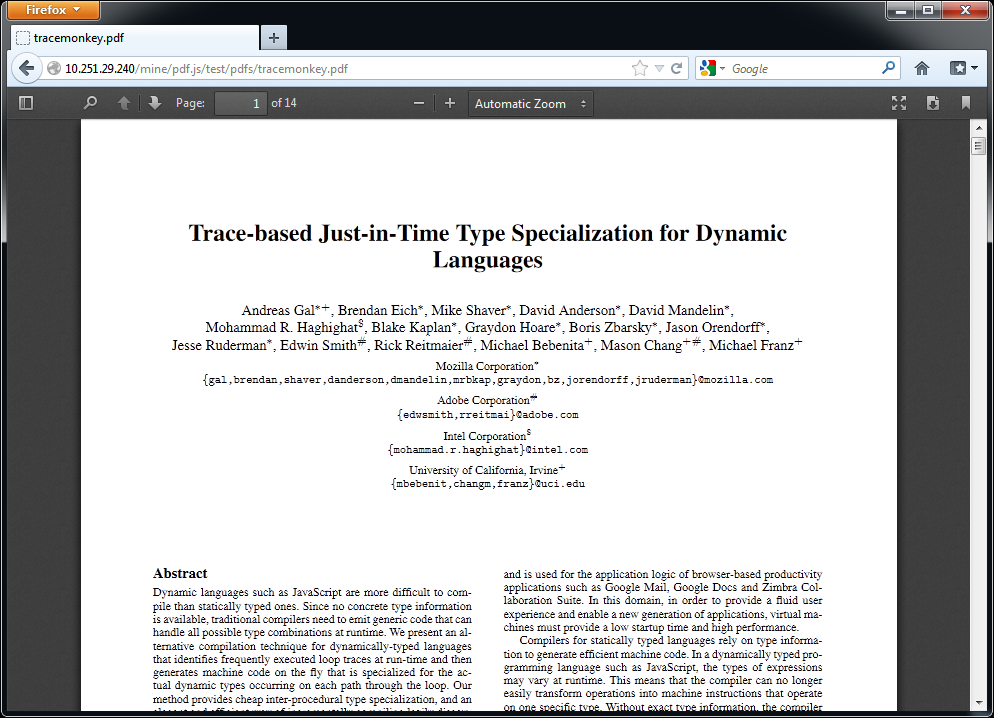Abstract:
Mail has long been the backbone of large organizations. Mail was considered such a critical function, it was enshrined as a responsibility of the Federal Government in the founding of the United States. Businesses had secretaries who took memos. Businesses built internal mail infrastructure. Speed became more critical, noting The Pony Express. Written communications became virtual, with the the telegraph. EMail became one of the first functions of networking on The Internet, with all other communications being called "snail mail". EMail was built into UNIX desktop workstations. EMail was unintuitively debundled with a separate fee by a dominate desktop vendor. EMail became bundled into internet HTML access. A new change is happening in the Open community, which the computing community should be made aware of, regarding Mozilla's Thunderbird, the off-shoot of the original integrated email & web browser, Netscape.
History:
Early, UNIX was the core of Internet, with text based email clients running with internet standard SMTP (Simple Mail Transfer Protocol.) UNIX workstations, such as the original Sun Microsystems, started bulding multi-media graphical email clients as part of their operating system (SunOS) and desktop environment (SunView), free of charge. With the investment from AT&T, Sun migrated to SVR4 base, and cooperated with AT&T on OpenLook - migrating their desktop application suite (including email) to make OpenWindows. Other vendors cooperated to build Motif. Open Systems vendors combined their efforts together to merge Motif with the Sun Desktop clients to become CDE (Common Desktop Environment) - which bundled the Sun desktop widget set, including the graphical email client.

AT&T did not offer a multimedia email client on their PC based Intel SVR4 OpenLook environment, but you could buy a Microsoft Mail server for AT&T UNIX SVR4. AT&T strangely decided to "give up" the email market, which it was partially responsible in building through UNIX. Their mail would remain command line driven. Fact is stranger than fiction, sometimes - they will wind up funding other people's development, in the future.

The PC build a fee-based email client, fee-based email server, per-user
client fee, fee for email product maintenance, and fee for their
proprietary to standards-based
internet gateway. For some, using graphical and multimedia email from the late 1980's, for 5
years, and having to revert to Microsoft Mail on a PC in the early 1990's
was terribly painful, but proverbial "bean counters" thought paying for
a non
multimedia based email with proprietary internet gateway on a PC based
client-server systems was less expensive
than free on an integrated UNIX desktop. With unified communication on a modern early 201x desktop, it is not
unusual to receive voice mail over the computer, but one now has to pay
for a VoIP PBX, VoIP clients to call (and leave voice messages), and pay
client licenses on the servers side - for a capability which existed
under Sun Workstations from the late 1980's. More on this, shortly.

Microsoft bundled Microsoft Mail client briefly with their desktop OS, which would only work against their proprietary email system. Netscape created one of the first commercial browsers with integrated
email as well as integrated web and email server. Internet providers started becoming more common, funded and bundled the Netscape integrated web client. The dominate desktop vendor, after effectively defeating UNIX open desktop workstations with their proprietary Windows operating system, drove Netscape out of business by making it impossible for system vendors to bundle the popular Netscape client software, and by distributing a free web browser on their OS client. Eventually, Microsoft pulled their half-featured desktop client and started selling an integrated email client called Outlook.
Netscape was purchased
by AOL, assets were split between Sun Microsystems for back-end software, while the Mozilla Foundation receive the integrated
email and web clients, and
AOL received
Netscape's on-line internet presence.) The integrated Mozilla integrated web client was
split into various components: Firefox (browser), Thunderbird (email),
Sunbird (calendaring.) There was virtually no market to fund innovation for the desktop clients, with dominance of proprietary email back-ends and free desktop clients.
Major internet presence companies such as AOL, Yahoo, Google, and (late-comer) Microsoft built increasingly integrated email and calendaring environments in the ever more complex (and capable) HTML standard language. The need for desktop clients started to disappear, as long as there was a reasonable desktop web client. The funding for the next generation of email and calendaring interfaces did not originate with selling software.
The new competition for email clients is no longer other email clients. People are increasingly turning to proprietary email solutions on embedded devices (ex. iPhone, iPad, etc.) where the hardware (or telco service fees) provide funding and integrated web based email clients, who find their funding stream via advertizing revenue.
Thunderbird News:
The Mozilla foundation, who divested the integrated Netscape client into Thunderbird and Firefox, started getting increasing pressure from large commercial internet presence, Google, with the creation of Chrome and the massive resources injected into a fast development cycle for their own namesake web browser, Chrome, which was bundled on their own popular embedded devices.

With the enhancement of internet clients, increasingly being bundled in vertical channels (Outlook for Microsoft Exchange, Internet Explorer for Microsoft Windows, Chrome web browser for Android Phones/Tablets, Apple Email/Safari for MacOSX/iPhone/iPad) and increasing investment by internet content providers (i.e. Yahoo, Google, Microsoft, AT&T, Verizon, AOL) of increasingly powerful web mail - pressure seemed to be placed on the entire Mozilla Foundation. The following delineated some of the most recent news regarding Thunderbird.
- Mozilla's Thunderbird, as was published a few days back by tech crunch, will soon be moving to the back burner
- It is expected that Open Source developers will need to pick up the slack, as Mozilla developers will move to more pressing projects.
- A simple governance model is being prepared, to take care of Thunderbird, in the future.
- Thunderbird ESR, or Extended Support Release, will not necessarily be impacted. Commercial and Education institutions will continue to get their critical support.
- The chairman of the Mozilla foundation posted an official blog response regarding the move. Community members involved in localization have contributed significantly, but other community members seem to be happy with what they have... with many people moving to web browser or vendor bundled proprietary email clients.
- Some consider the move to be a death knell for Thunderbird, wondering where people will move to next.
Network Management:
Some may be asking - what is the opinion of the Network Management team. If Mozilla will continue to keep Thunderbird on modern releases of the browser rendering engine, it might not be that significant. It seems community involvement has been lacking and there has not been much of a driver for innovation. As long as Microsoft is selling an email client, Thunderbird remains relevant.
What is little mentioned was Netscape's and Mozilla's Thunderbird
NNTP (network news transfer protocol) integration. Usenet's net news integration in Netscape and Thunderbird was one of the key collaboration features, which is supported by Thunderbird, from which there is no other client. There are various web based NNTP gateways, but the Thunderbird client support was very robust.
With security fixes continuing to happen every 6 months, there will still be work ahead for the network management community. If you are a Thunderbird user, it appears your long term investment will be maintained, but please get involved if you are interested in newer features.
















